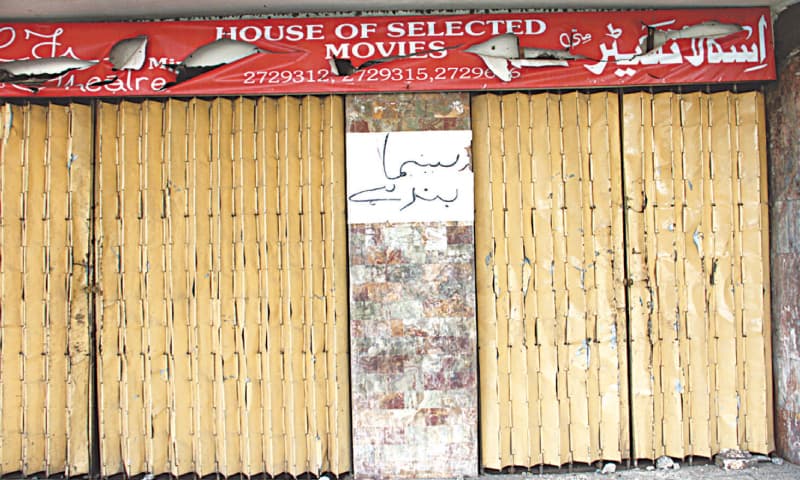KARACHI: Hopefully, the federal government’s decision to reopen cinemas will hold us in good stead.
Ever since the word ‘lockdown’ entered our everyday lives, both the government and the intelligentsia of this country have been trying to come up with ideas in order to strike the right balance between health and the economy. Oscillating between the two is understandable.
But there’s a common factor in these two extremely important subjects: mental health. A stifling economy can put society under all kinds of pressures. The entertainment industry in particular and the world of art in general help people take their minds off their rigorous daily routines as well as get a sense of what life is, or can be, about.
Last month, the British government injected 1.57 billion pounds into its economic system to save the performing arts industry (theatre, to be specific) because it was feared that by December, 70 per cent of theatres in England would have gone out of cash. They have not only saved the industry but rescued the artist community from getting mentally unhinged.
Social distancing at cinemas can be easily maintained and managed, with each cine-goer sitting with a gap of two empty seats, if not one
In the last couple of years, Pakistan’s cinema business largely operating from Karachi had begun to gain momentum. The multiplexes and even single-screen cinemas had found their new audiences. With the lockdown enforced, the entire entertainment fraternity, the businesses associated with them and the public for whom cinema is one of the most satisfying ways to calm their nerves were looking down the barrel.
Interestingly, a little bit of ‘creativity’ can find us a way out of this straitjacket. Just as we have experienced that the bigger shopping malls are the places where standard operating procedures (SOPs) are observed in a convincing manner compared to open bazaars or markets, multiplexes can achieve the same goal because they strictly adhere to a system (of ticket-issuing, ticket-checking, not letting anyone without a ticket to come into the cinema halls etc) and have plausible security measures in place.
Social distancing can be easily maintained and managed, with each cine-goer sitting with a gap of two empty seats (if not one). Children under the age of 12 should not be allowed. This will have a bit of financial blow to the cinema owners and film financiers because the halls will not be filled to capacity, but it will be a start and might lead to accomplishing something more doable in pandemic-hit times. Also, one of the multiplexes in Karachi has an open-air arrangement which is a good way to watch a movie in an uncontained environment.
Speaking of open air, many moons ago Karachi used to have drive-in (or drive-thru) cinemas. They were brilliant recreational facilities. It’s believed that the virus doesn’t affect humans in open spaces. So, drive-in movie watching spaces can be a doubly delightful source. Can we have them back?
Of course, these are suggestions, keeping in mind our innate need for entertainment and to keep our minds off the challenges we face on a day-to-day basis. And to keep the wheel of the economy turning, too, the step can go a long way.
These days, cinema, television and theatre artists find themselves in a quandary; a big number of them are feeling the pinch. In one of his essays, eminent artist and president of the National Academy of Performing Arts (Napa), Zia Mohyeddin argues, “Most people find unemployment irksome, but for actors — who encounter it more than most people — it is excruciating.”
True that.
Published in Dawn, August 9th, 2020
















































Dear visitor, the comments section is undergoing an overhaul and will return soon.